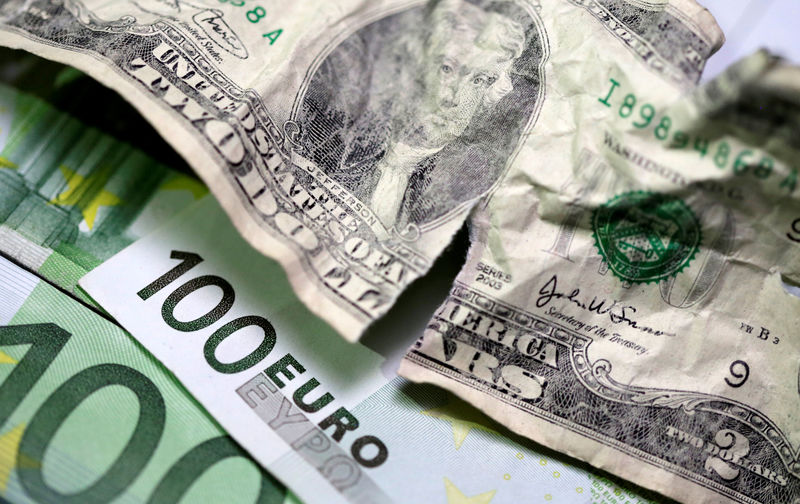By Geoffrey Smith
Investing.com -- The dollar was up modestly in early trading in Europe on Monday, at the start of a key week for central bank meetings on both sides of the Atlantic.
By 03:00 ET (08:00 GMT), the dollar index, which tracks the greenback against a basket of six advanced economy currencies, was unchanged at 101.72, having drifted for much of last week while the Chinese and some other Asian markets were closed. The yuan reopened strongly on Monday, rising 0.5% to 6.7512 against the dollar.
The Federal Reserve announces its latest policy decisions on Wednesday, while the European Central Bank and Bank of England are due to follow on Thursday. All three are expected to raise their official interest rates further, but there is more uncertainty over how the institutions will guide expectations over the future path of rates, with inflation set to recede and economic growth set to ebb.
The market expects the Fed to raise the range for fed funds by only 25 basis points to an upper limit of 4.75%, while ECB officials have guided for a 0.5% hike, which would take its deposit rate to 2.5% and its refinancing rate to 3.0%. Opinions are divided about whether the BoE – whose Bank Rate currently stands at 3.50%, will opt for 25 or 50 basis points.
"There are increasing signs that the opinion of markets and of the Fed are getting further and further apart at the moment," said Frank Sohlleder, an analyst with ActivTrades, warned in a note to clients on Monday. "The Fed – and, for that matter, the ECB, isn't tiring of stressing that the direction is right, but that there is still a way to go until inflation comes down below 2%."
Deutsche Bank strategist Ulrich Stephan noted that interest rate futures currently imply expectations of 0.4% of rate cuts from the Fed by year-end, an idea that is at odds with much of the Fed's recent guidance, where the emphasis has been on holding the fed funds rate above 5% for an extended period of time. Stephan pointed out that the 3.3% implied 'terminal rate' for the ECB's deposit rate is also somewhat below what ECB officials are suggesting.
Eurozone data for inflation and economic growth may yet have some impact on the market's thinking ahead of the ECB meeting. Headline Spanish inflation, which has had something of a record as an advance indicator for the single currency region in recent months, failed to decline in January despite an absolute drop in prices in month-on-month terms. GDP growth data are due from Germany at 04:00 ET today, and from the Eurozone on Tuesday.
